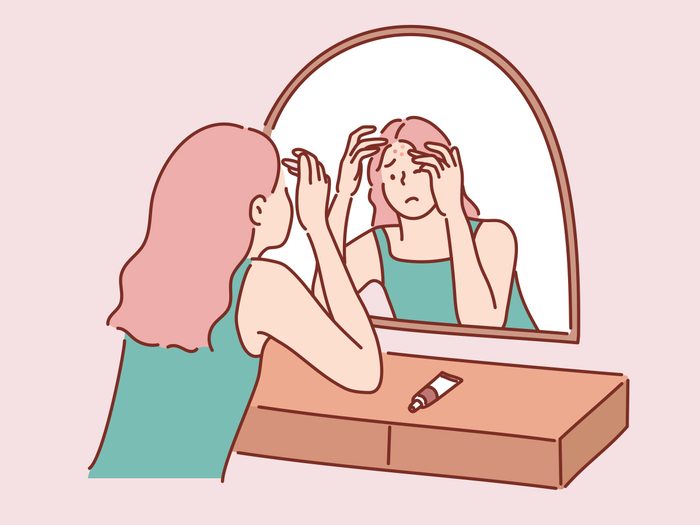I’m Breaking Out. Is My Birth Control to Blame?

Experts say the answer depends on the type of birth control pill.
For decades, the birth control pill has been prescribed for more than just preventing pregnancy. “The pill” is widely used in Canada for a myriad of reasons including to make periods lighter and more regular, easing menstrual cramps and clearing acne. But in an unwelcome twist, could birth control cause acne?
According to the Canadian Dermatology Association, three-quarters of adult acne occurs in women and there are several factors, ranging from genes to stress, that can cause or trigger whiteheads, blackheads and pimples.
Birth control is a common hormonal agent prescribed for the treatment of acne. And when it comes to the question of whether birth control can cause acne, Dr. Constance Nasello, an ob-gyn in Chatham, Ontario, says the answer depends on the type of pill.
The type of birth control pill matters
Sex hormones, such as testosterone, are known as androgens and play a crucial role in the development of acne. Some birth control pills can stimulate the production of androgens and Nasello explains that excess can be linked to acne. That’s why, though the birth control pill can help most people with acne, Nasello says “it really depends on which pill.”
Dr. Marjorie Dixon, CEO and medical director at Toronto’s Anova Fertility and Reproductive Health, agrees. “[Androgens] increase oil production in the skin, which can block pores and cause acne,” Dixon says. “A combination pill, which contains both estrogen and progestin, is the most effective against acne because it decreases androgens in the body.”
In contrast, the progestin-only pill contains only one kind of hormone (progestin). This kind of pill has been known to stimulate the production of androgens, which may worsen or exacerbate acne.
(Related: How Birth Control Can Impact Your Breast Size)
Give it time
If you start the birth control pill and notice your skin is the same or—ugh—even worse, don’t fret. Dixon warns it can take time for your body to adjust to the hormones.
“It typically takes about three months for birth control to begin exerting its acne-fighting effects, so make sure to give your prescription time to work,” she says.
Nasello gives the same advice and cautions that you could experience temporary acne flare-ups throughout your birth control journey if you aren’t dosing consistently. If this sounds like you, Nasello advises that you take the pill at the exact same time every day. For someone who just started taking the pill, it might take some time to settle into a consistent schedule, and this could contribute to hormone fluctuations and acne flare-ups during the first couple of months on the medication.
In fact, if you’re prescribed a progestin-only pill, it’s actually critical to take your pill at the same time every day—not only for your skin, but to prevent pregnancy. In addition to causing acne flare-ups, Nasello says inconsistent dosing can make the pill a less effective form of birth control, even causing other issues like breakthrough bleeding.
(Related: Oily, Dry, or Irritated Skin? There’s a Skincare Acid for That)
Reminder: Birth control isn’t really meant to treat acne
According to Dr. Jerilynn Prior, a professor of endocrinology and metabolism at University of British Columbia, users of the pill should know that it is designed, first and foremost, to prevent pregnancy.
“Although many doctors talk about (the pill) as though it’s standard to prescribe it for other things…these medicines are made for control first, not for treatment,” Prior says. If you are using the pill purely for acne flare-ups and breakouts, Prior recommends that you see a dermatologist to explore your options.
Next: A Decade-by-Decade Guide to Changing Up Your Skin Care Routine




